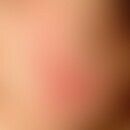DefinitionThis section has been translated automatically.
A wholefood diet means predominantly plant-based foods, preferably unprocessed. Essentially a lacto-vegetarian diet: fruit, raw or steamed vegetables, pulses, cereal products and dairy products. Refined sugar, artificial additives and industrially manufactured products are avoided. The food is freshly prepared.
Various names are mentioned as the first creators and inventors:
Werner Kollath
Maximilian Oskar Bircher-Benner
Claus Leitzmann, Karl von Koerber and Thomas Männle
The German Nutrition Society (DGE) has published a table of wholesome nutrition, taking into account ecological and sustainable aspects (see references 3 and 4).
General informationThis section has been translated automatically.
- Preferred foods: vegetables and fruit, potatoes, wholemeal products, pulses, dairy products, vegetarian, fresh food. Meat, fish and eggs in smaller quantities. The amount of food consumed should be assessed individually.
- Avoid the following foods: foods with additives, irradiated or genetically modified, prefer regional or seasonal foods
Food energy: The average energy requirement of an adult is around 2,000 Kcal/day. However, individual requirements and daily activity (pal values) should be taken into account when adjusting to the basic diet. During a complete basic diet, a general reduction in calorie intake to 1,000 Kcal per day is not advisable, as this is always accompanied by a severe restriction of carbohydrate-rich products such as fruit, vegetables and wholegrain products (reduced intake of nutrients and fiber).
A strong feeling of hunger and a reduced quality of life would subsequently lead to a discontinuation of the reduction diet. A reduction in dietary fat with a constant food intake and high nutrient density, on the other hand, is recommended.
LiteratureThis section has been translated automatically.
- Anemüller Helmut (1987) The basic diet system. Guide to nutrition therapy with whole foods, basic diet whole foods, intensive nutrition therapy, special diets, nutritional physiological data Hippokrates Stuttgart 1997
- Weidner B (2012) In: André-Michael Beer, Martin Adler [eds.] Leitfaden Naturheilverfahren für die ärztliche Praxis, Urban und Fischer Verlag p 119f.
- https://www.dge.de/fileadmin/dok/wissenschaft/fachinformationen/DGEinfo-06-2019-Vollwertige-Ernaehrung.pdf
- Oberritter H et al. (2013) The DGE nutrition circle - presentation and basis of the food-related recommendations from the
German Nutrition Society (DGE). Ernahrungs Umschau 60(2): 24-29



